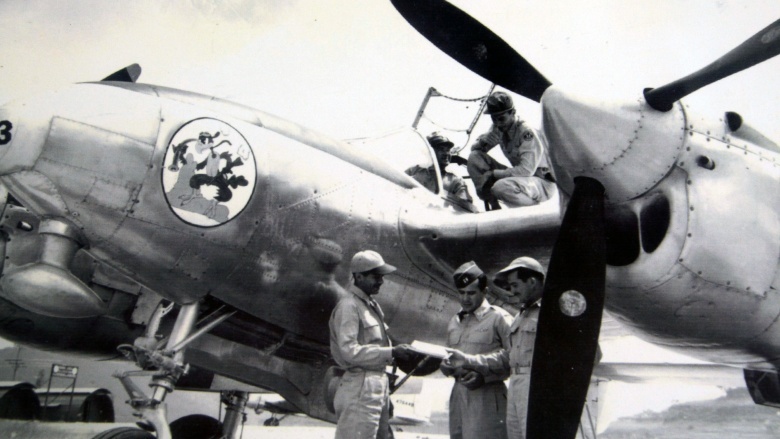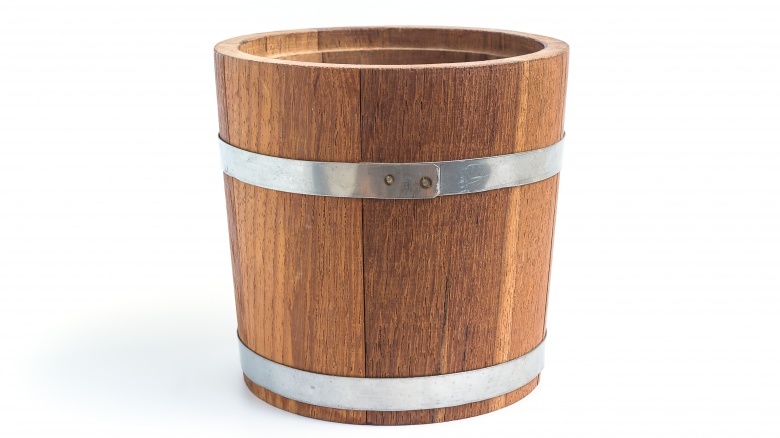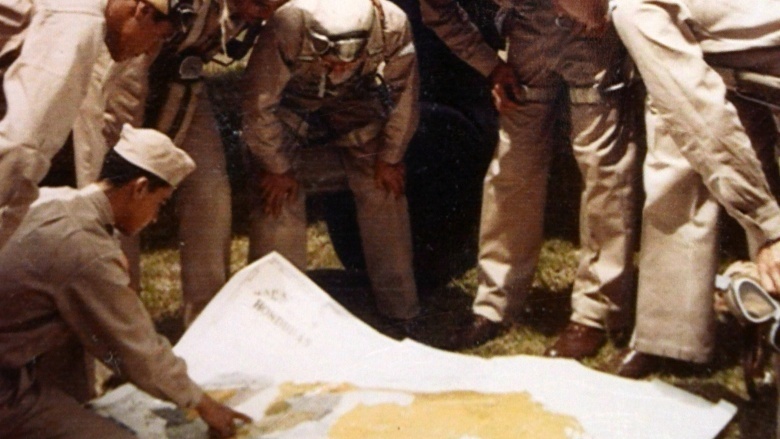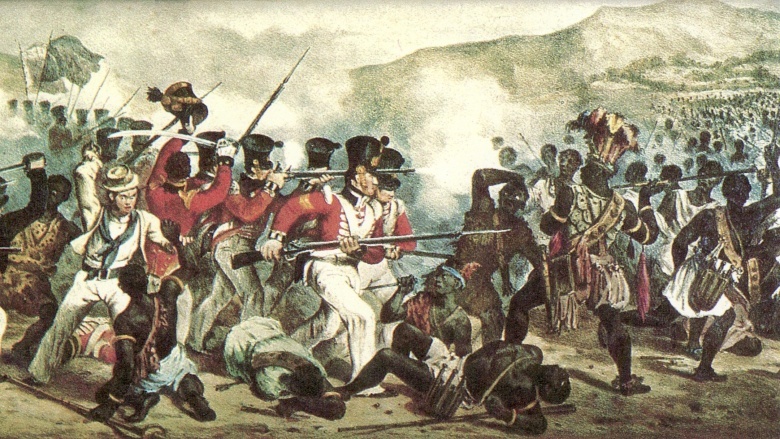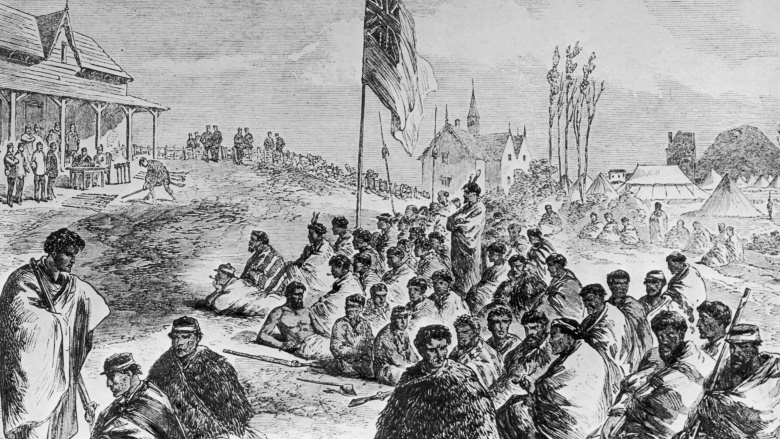Wars Started Over Ridiculously Petty Reasons
Countless wars have been fought throughout human history, and they usually start for the same reasons: either someone wants to take someone else's resources, or it's a religious thing, or both. Once in a while, though, people go to war for reasons that are even more obtuse, bizarre, and downright idiotic. Here's a look at some actual wars that were started over ridiculously petty reasons.
The War of the Oaken Bucket
This is one of many incredibly stupid wars that came about because people were just looking for any possible excuse to kill each other. It happened in Italy in 1325. The rival city-states of Bologna and Modena were constantly at each other's throats because Bologna backed the pope and Modena backed the Holy Roman Emperor. One day, some soldiers from Modena stole an oaken bucket from a Bolognese well. That moral outrage was excuse enough for Bologna to muster up an army because they just had to get that bucket back at all costs!
The attack was a colossal failure, with over 30,000 Bolognese troops being routed by barely 7,000 Modena soldiers. Thousands died during the battle. But whatever, the important thing is that Modena kept the bucket, which they still display to this day to taunt their ancient enemies. Really mature, guys.
The Soccer War
If you thought fighting over a stolen bucket was goofy, how about a war over the outcome of a soccer game? And this didn't happen hundreds of years ago when people were presumably dumb, it happened in 1969! Yep. The neighboring countries of El Salvador and Honduras had been bickering for a while over economic issues when the two teams faced off in qualifiers for the 1970 FIFA World Cup. After splitting their two matches, they played a winner-take-all playoff game. All three games were marred by escalating rioting between fans. El Salvador won the match, but that apparently didn't satisfy them. Honduras ended diplomatic relations on the day they lost. Within a couple weeks, El Salvador declared war on Honduras and began bombing raids. The war lasted for five days, racking up thousands of casualties before cooler heads prevailed. Where was master diplomat Pele when they needed him?!
The War of the Golden Stool
The Gold Coast of Africa earned its name because of, you know, all the gold. In the Empire of Ashanti, in modern-day Ghana, the Ashanti used some of that gold to decorate a special stool that their ruler used as his throne. In 1900, the British governor demanded that the Ashanti people turn the throne over to him as a symbol of their conquered status. Instead, the Ashanti hid the stool and declared war. For months, the two sides battled it out. The Ashanti were defeated and many died, but they still considered it a victory. Why? Because the British never found that all-important stool. We'll just call this one a draw.
The War of Jenkins's Ear
Like pretty much everything involving the many wars of the British Empire, the background to this one is complicated. But let's start here: the Spanish felt the British were cheating on a trade agreement, so they started capturing British ships and torturing their crews. In 1731, they captured Captain Robert Jenkins and cut his ear off. Thankfully, they left the severed ear with him as a keepsake, because he brought it to Parliament years later and showed it off as part of his testimony against Spanish aggression. Convinced by the severed ear that they had proper cause to begin Armageddon, Britain declared war. The war lasted for three years before becoming part of an even bigger, deadlier war called the War of the Austrian Succession. And this kind of thing is why no one ever writes stories about the dumbest reasons people ever declared peace.
The Flagstaff War
No, there wasn't a secret war in Arizona you never heard about. This flagstaff is an actual, literal flagstaff. So just in case you thought buckets and stools were the only inanimate wooden objects worth going to war for, here's proof you are wrong. And like many of these other wars, the Flagstaff War also involved the British Empire being dodgy, this time in New Zealand in 1845. Frustrated by the British conquering everything so Britishly, the Maori leader Hōne Heke decided to protest by having his sidekick chop down the flagstaff in the British fort. Those persistent Brits rebuilt it, so Hōne Heke chopped it down himself this time. Then he did it again. And then again. Deciding four times was enough, the British launched an all-out war against Hōne Heke; it took several battles and nearly a full year before hostilities ceased—but the British didn't try to erect a fifth flagstaff.
The War of Dahis
You know what else gets people in a fighting mood besides wood? Animals. The War of Dahis was a bloody 40-year feud between two Arabian tribes that began in the year 568 over allegations of cheating in a horse race. Just as the famed stallion Dahis was on the verge of winning the race, warriors from the opposing faction forced him off the course, leading to a surprise loss. The king who owned Dahis didn't take kindly to this and demanded payment of the bet he had made. When payment was not forthcoming, he went to Plan B, which was murder. This was a bummer. The other tribe reciprocated, leading to decades of open warfare.
War of the Stray Dog
Pet owners are notoriously weird about their pets. You know this is true because you either are one yourself or you have one in your Facebook feed. But that kind of extreme loyalty can have some pretty negative side effects, such as starting a war. Case in point: The War of the Stray Dog, which happened in October 1925 when a Greek soldier chasing his pet dog crossed over the border into Bulgaria. That was his final mistake, as a Bulgarian guard shot him dead. Greece responded by mobilizing an entire army and invading Bulgaria. The League of Nations eventually intervened and forced Greece to back down, but by that point, 50 Bulgarians had died in the fighting. No word on the fate of the dog.
The Cod Wars
Cod: it's what's for dinner if you can't get salmon. It's also the unlikely reason for a series of goofy naval wars between Britain and Iceland beginning in 1958. Iceland, you see, wanted to make sure that nobody else got their dirty hands on all that delicious (?) cod, so they began extending an Icelander-only fishing zone around their island. They started the zones at 4 miles and then pushed it out to 12, then 50, and finally 200 miles over the next 18 years.
Britain responded by totally ignoring those zones. No one is scared of Iceland. Iceland didn't like that, and they retaliated by attacking British fishing vessels. Britain then deployed its world-famous navy, leading to a number of boats being rammed and fired upon in violent confrontations. NATO finally intervened on behalf of Iceland in 1976, and you can now get fresh cod any time you want ... if you really feel you have to.
